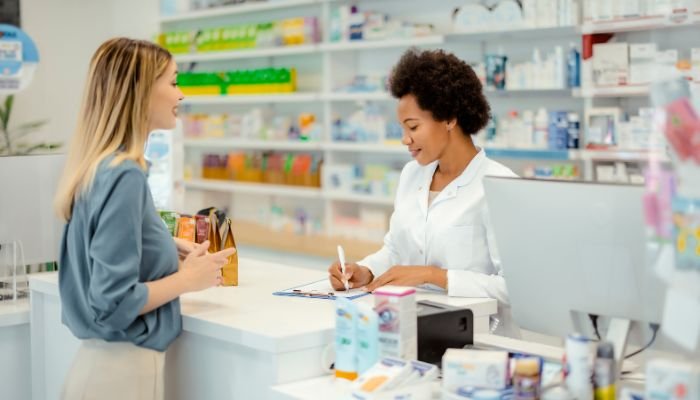Extracurricular activities have always played a vital role in shaping a well-rounded education. For students in pharmacy colleges, particularly in Dehradun, these activities offer numerous benefits that extend beyond the traditional classroom learning environment. Dehradun, known for its serene landscapes and educational institutions, provides an ideal setting for students to engage in various extracurricular pursuits. These activities not only enhance the educational experience but also prepare students for the challenges of professional life. This article delves into the significance of extracurricular activities in Dehradun’s pharmacy colleges, highlighting their impact on personal development, professional skills, and overall student well-being.
Holistic Development
Extracurricular activities contribute significantly to the holistic development of students. Pharmacy education is demanding, often requiring intense focus and dedication. While academic excellence is crucial, personal growth is equally important. Participating in activities such as sports, cultural events, debates, and clubs allows students to explore their interests and talents beyond academics. This exploration fosters creativity, self-expression, and confidence.
Engaging in diverse activities helps students develop a balanced personality. For instance, involvement in sports teaches teamwork, discipline, and time management. Cultural activities promote appreciation for arts and traditions, enhancing cultural sensitivity and empathy. Leadership roles in clubs and organizations cultivate essential skills such as communication, decision-making, and problem-solving. These qualities are invaluable in both personal and professional spheres, making students well-rounded individuals.
Enhancing Professional Skills
Pharmacy is a dynamic field that demands a wide range of skills. While theoretical knowledge forms the foundation, practical skills and soft skills are equally critical. Extracurricular activities provide a platform for students to hone these skills in a real-world context. For example, participating in a debate club enhances public speaking abilities, critical thinking, and the capacity to articulate complex ideas clearly and persuasively.
Involvement in professional organizations and societies related to pharmacy offers students opportunities to network with industry professionals, attend conferences, and stay updated with the latest advancements in the field. These experiences provide insights into the practical aspects of pharmacy, bridging the gap between classroom learning and industry expectations. Students who actively engage in such activities are often better prepared for internships, job interviews, and professional practice.

Building a Strong Peer Network
College life is not just about academic learning; it is also about building relationships and creating a support system. Extracurricular activities facilitate interaction with peers from diverse backgrounds and disciplines. These interactions foster friendships, collaboration, and a sense of community. In pharmacy colleges, where the curriculum can be intense, having a strong peer network can provide emotional and academic support.
Group activities, such as organizing events, participating in sports teams, or working on community service projects, encourage teamwork and cooperation. Students learn to value different perspectives, work towards common goals, and develop a sense of camaraderie. These relationships often extend beyond college, forming a valuable professional network in the future.
Stress Relief and Mental Well-being
Pharmacy education can be stressful, with rigorous coursework, exams, and practical sessions. Extracurricular activities offer a much-needed break from this academic pressure, contributing to mental well-being. Engaging in physical activities, such as sports or yoga, helps reduce stress, improve mood, and enhance overall physical health. Creative pursuits like music, dance, or art provide an outlet for self-expression and relaxation.
Moreover, participation in extracurricular activities promotes a balanced lifestyle. It encourages students to manage their time effectively, balancing academic responsibilities with leisure and personal interests. This balance is crucial for preventing burnout and maintaining a positive outlook towards education and life.
Community Engagement :-
Extracurricular activities often extend beyond the confines of the college, involving community engagement and social service. Pharmacy students in Dehradun have numerous opportunities to participate in health camps, awareness drives, and community outreach programs. These activities instill a sense of social responsibility and compassion, aligning with the core values of the pharmacy profession.
Engaging with the community allows students to apply their knowledge and skills in real-world scenarios, addressing healthcare challenges and contributing to public health. It also helps them understand the societal impact of their profession and the importance of ethical practices. Such experiences are enriching and fulfilling, reinforcing the commitment to serve and make a difference in society.
Leadership and Initiative
Extracurricular activities provide a fertile ground for developing leadership skills. Taking up roles such as club president, event organizer, or team captain requires initiative, responsibility, and the ability to motivate others. Pharmacy students who take on such roles learn to lead by example, manage resources efficiently, and navigate challenges effectively.
Leadership experiences during college prepare students for future roles in their professional careers. They learn to take charge, make informed decisions, and inspire teamwork. These qualities are particularly important in the healthcare sector, where leadership can significantly impact patient care and organizational success.

Exploring Career Interests
Extracurricular activities offer students the opportunity to explore various career interests and pathways. Pharmacy is a diverse field with numerous specializations, including clinical pharmacy, research, regulatory affairs, and pharmaceutical marketing. By participating in related activities, students can gain insights into different aspects of the profession and identify their areas of interest.
For instance, involvement in a research club can ignite a passion for scientific inquiry and innovation. Participation in industry visits or internships can provide a glimpse into corporate roles and operations. Such experiences help students make informed career choices and align their academic pursuits with their professional goals.
Fostering Innovation and Creativity
Innovation and creativity are essential for progress in any field, including pharmacy. Extracurricular activities encourage students to think outside the box, experiment with new ideas, and develop innovative solutions to problems. Whether it is through participation in science fairs, innovation challenges, or creative arts, students are inspired to push boundaries and explore new possibilities.
These activities cultivate a mindset of curiosity and experimentation, which is crucial for research and development in pharmacy. Students learn to approach problems with a creative outlook, collaborate with others, and contribute original ideas to the field. This innovative spirit is essential for advancing healthcare and improving patient outcomes.
Cultural Sensitivity and Global Perspective
In an increasingly globalized world, cultural sensitivity and a global perspective are invaluable. Extracurricular activities that involve cultural exchange, international conferences, or study tours expose students to different cultures, practices, and viewpoints. Pharmacy students in Dehradun can benefit from such experiences, broadening their horizons and understanding global healthcare challenges.
Cultural sensitivity is particularly important in pharmacy, where professionals interact with diverse patient populations. Understanding cultural differences and respecting various health beliefs and practices is essential for providing effective and empathetic care. Extracurricular activities play a crucial role in fostering this cultural awareness and global mindset.
Conclusion
The importance of extracurricular activities in Dehradun’s pharmacy colleges cannot be overstated. These activities contribute to the holistic development of students, enhancing their personal, professional, and social skills. They provide a platform for exploring interests, building networks, and gaining practical experience. Furthermore, they promote mental well-being, community engagement, and leadership.
For pharmacy students, participating in extracurricular activities is not just a means of relaxation or entertainment; it is an integral part of their education. It prepares them to face the challenges of the professional world with confidence, competence, and a sense of responsibility. Dehradun, with its vibrant educational environment and natural beauty, offers an ideal setting for students to engage in these enriching activities.
As the demands of the healthcare sector continue to evolve, the need for well-rounded pharmacists who possess a blend of academic knowledge, practical skills, and soft skills becomes increasingly important. Extracurricular activities play a pivotal role in shaping such professionals, ensuring they are equipped to make meaningful contributions to healthcare and society. Therefore, pharmacy colleges in Dehradun should continue to encourage and support student participation in these activities, recognizing their critical role in comprehensive education and professional development.








